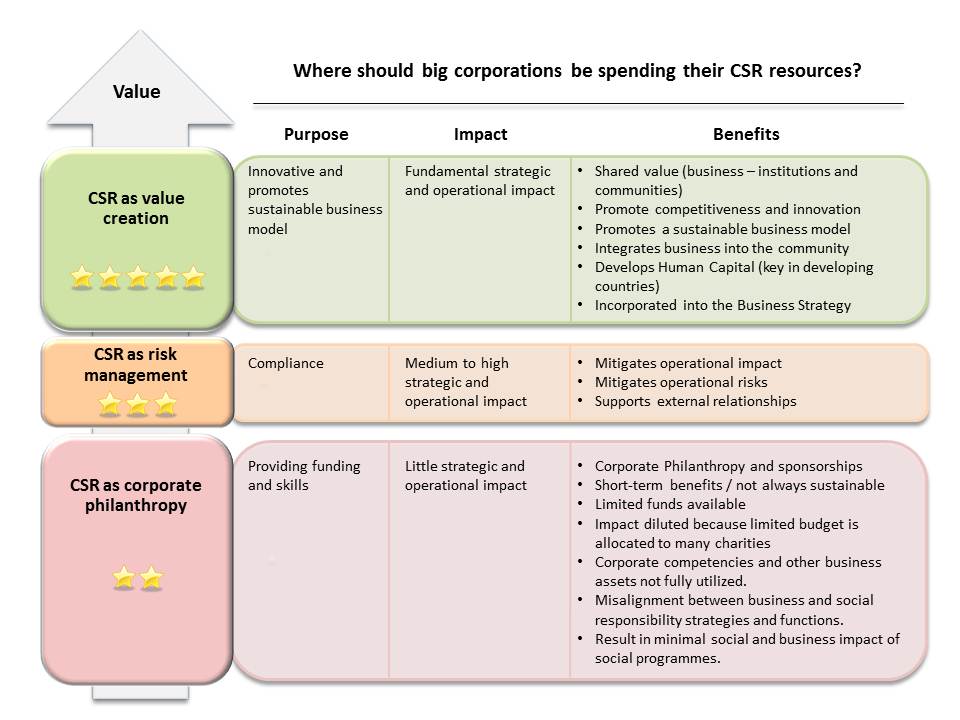Corporate
Social Responsibility (CSR) has been around since the late 1960 and
early 1970, when multinational corporations (MNC) introduced the term
stakeholder, meaning those on whom the activities of an organization
have an impact.
CSR functions as an built-in self-regulated mechanism aiming at covering the responsibility of a company's actions and promote a positive impact through their activities on environment, consumers, employees, communities, stakeholders and all other members of the public sphere that can also be considered as stakeholders.
CSR functions as an built-in self-regulated mechanism aiming at covering the responsibility of a company's actions and promote a positive impact through their activities on environment, consumers, employees, communities, stakeholders and all other members of the public sphere that can also be considered as stakeholders.
Two decades of incentives on consumers to buy more and more, increased competition, the short-term pressure from shareholders has led to waves of restructuring, downsizing and relocating businesses to low-costs regions resulting in commoditization, price competition, little innovation, slow organic growth, and the loss of a clear competitive advantage. Communities where businesses operate eventually receive little benefit, even as MNCs profits increase.
A business needs a successful community, not only to create demand for their products, but also to provide essential public goods and infrastructure support. A successful community needs businesses to provide jobs and wealth creation opportunities for its citizens.
Shared Value Creation (CSV), which focuses on the relationship between economic and social progress, is inevitable and might probably trigger the next wave of global growth. As governments and NGOs, companies should also focus on solving social problems. This will require cross-sector collaborations - nonprofit, public, for profit- and the creation of new organizational hybrid models.
There are three main strategies to create shared value: reconceiving products, services and markets, redefining productivity in the value chain and enabling the development of local clusters.
At Soulsight, we use design thinking to understand the needs of people, and from a broader perspective, to solve social problems. We do this by collaborating with different types of organizations from different sectors and co-developing new services and organizational models. In a context of crisis, our human centered approach is a predominant response to value creation. Therefore, it seems natural to put our holistic and creative process at the service of CSV, as it is fundamentally aligned with the purpose of Soulsight: make our world a better place!
Still, there is a significant lack of structure as companies are still trapped in the old mind-set, believing that social problems must be addressed in the periphery of their business models and not at the center. However, the concept of CSV, has attracted a growing number of MNCs such as General Electric, Google, IBM, Intel, Johnson & Johnson, Nestle, Unilever and Wal-Mart as they sense it can be competitive advantage of the future.
So... what are you doing?
